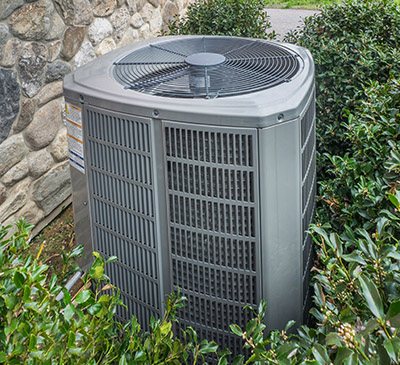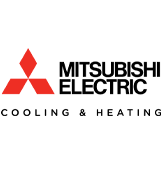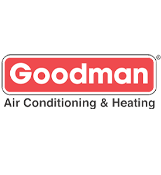
HVAC systems always produce at least some amount of noise, but many homes have issues where their system is excessively loud for various reasons. For instance, you may have loose or sagging ducts that vibrate and rattle. The sound of the blower and furnace can also travel through your ducts so you hear them running even in the parts of the home that are furthest away. Issues with your ductwork can also lead to the blower working harder or cause air to rush through the ducts with more force, both of which can make the system much louder. While it’s not always possible to ever fully eliminate the noise coming from your HVAC system, this article will discuss some effective options you may have that will dampen some of the sound and keep your home quieter.
Get Your Heating and AC Serviced Annually
Many issues that can cause an HVAC system to make excessive noise can be prevented with annual maintenance and regular inspections. One essential maintenance task is cleaning the housing on the blower. When the housing is coated in lots of dust, it prevents the blower from working effectively. This typically results in its motor working harder, which in turn causes it to produce more noise.
If you have a furnace, having its gas burners cleaned regularly is also important. Dirty burners often result in a slight delay before the furnace ignites. This delay allows gas to begin filling up the combustion chamber. When the gas finally lights, it can produce a small fireball and make a booming sound that can easily be loud enough to wake you up. One added benefit of having your HVAC system serviced is that it will help it to be more efficient so your heating and cooling costs stay lower.
Wrap and Insulate Air Ducts
Wrapping and insulating your air ducts can reduce the sound from both vibration and the air flowing through them. There are a variety of sound-dampening materials available that are designed to wrap around ducts and can greatly reduce the amount of noise produced by ductwork vibration. After wrapping the ducts, you can then have them insulated so that you can’t hear the air rushing through them nearly as much. Insulating your ductwork can also improve energy efficiency and prevent issues with condensation and mold.
Install Sound Dampeners on Furnace and Air Handler
There are also special sound-dampening materials that can be cut to size and stuck onto a furnace and/or air handler where the blower is located. This will also help to limit the amount of sound you hear when your furnace runs and also make the blower less noisy.
Build an Insulated HVAC Closet
An even better option if you have the space is to build a closet around the main part of the HVAC system. As long as the closet is sufficiently insulated, it will help trap the noise in and make your HVAC system much quieter. The only issue with this is if you have a conventional gas furnace. In this case, the closet must have adequate ventilation. This is because a conventional furnace needs to be able to draw air in from the surrounding area or else it won’t be able to fully combust the gas flowing to it and will produce much less heat.
Update or Repair Your Ductwork
It’s a good idea to have your ductwork inspected at least every few years to ensure none of the ducts are loose or sagging and that there are no leaks. Any leaks will often lead to the ducts producing a loud whistling noise that results from the air rushing out of the holes or cracks. Having your ducts resealed is an easy way to overcome this issue and will also greatly improve your HVAC system’s energy efficiency.
Many older homes also have an issue with their ductwork being too small for the size of their HVAC system or not properly designed. Ideally, all of the ducts in a home will mostly run straight and have as few sharp angles or bends as possible. Curved bends are always much better than sharp 90-degree angles. Any sharp turns in the duct system create more resistance and cause the static pressure to be higher. High static pressure means that the air encounters more resistance as it flows through the ducts, which leads to the air flowing more forcefully and producing lots of additional noise. Undersized ductwork also leads to the static pressure being much higher than it should be.
If the air flowing through your ducts makes lots of noise, it’s a good idea to have a technician inspect your ductwork and measure the static pressure in your system. This is because high static pressure not only leads to a much noisier HVAC system but also makes the system quite a bit less efficient. Adding additional ducts, using flexible ductwork in some places or increasing the size of some parts of the duct system can all help lower the static pressure so your system works better and runs more quietly.
Keep All Supply Vents Open
One mistake many people make is that they close the supply vents in some parts of the home. The idea is that this will direct more hot or cool air to the occupied areas of the home and lessen the amount of energy the HVAC system uses. The opposite is actually true, as closed vents cause the static pressure to be much higher. This again leads to the air flowing through the ducts making much more noise and the system working less effectively and using more energy.
Replace Your HVAC Air Filter More Often
Even something as simple as replacing your air filter can help to minimize the noise coming from your HVAC system. Three months is the longest you should ever go without replacing the air filter, but many systems could benefit from more frequent filter changes. Dirty air filters are extremely restrictive, which means they reduce how much air the blower can pull into the HVAC system. This causes the blower to run louder since it has to work harder. A dirty filter can also cause the return air duct to whistle since it often leads to air getting sucked through the small gap around the filter.
Upgrade to a Two-Stage or Variable-Speed HVAC System
This last method generally only makes sense if you’re already planning on replacing or upgrading your HVAC system, but it is by far one of the most effective options for reducing HVAC noise. Two-stage systems have a furnace, AC or heat pump that has a high and a medium power setting and also a blower that has two speeds or sometimes multiple speed settings. This type of system will run at medium power around 80% of the time on average. Not only does this save lots of energy and help to keep the temperature in the home from fluctuating nearly as much, but the system will also produce far less noise any time it isn’t running on full power.
Variable-speed systems are even more efficient and sometimes produce almost no noticeable noise. Instead of just having two settings, this type of system typically has hundreds of settings and can slow down to around 25% of its full capacity. The system will always automatically adjust and speed up or slow down the rate of heating or cooling so that the temperature always stays exactly where it should be. While a variable-speed system definitely isn’t cheap, it will usually more than pay off by saving you lots on your energy bills and keeping your home far quieter and much more consistently comfortable.
Polar Air & Heating, Inc. has been proudly serving the Las Vegas area since 1998, and we offer multiple solutions that can make your HVAC system quieter. Whether you need to insulate or upgrade your ductwork or you need to have your HVAC system serviced, repaired or replaced, we’re ready to help. To schedule an inspection and consultation and learn what options you have for reducing HVAC noise, contact us today.




















